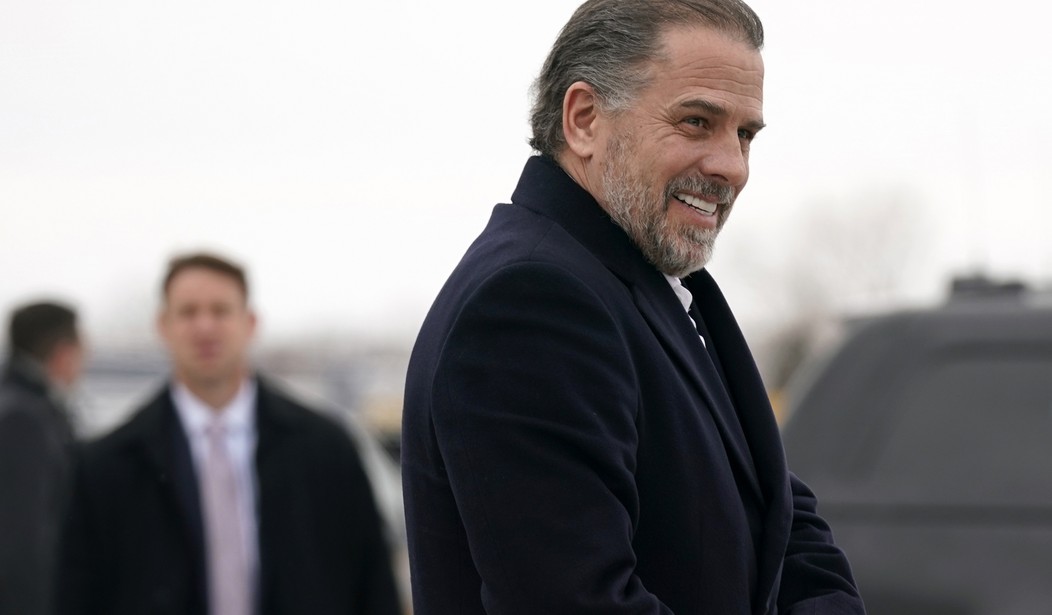House Oversight Committee Chairman James Comer slapped Hunter Biden's art dealer, George Bergès, with a subpoena Thursday after months of stonewalling and lack of cooperation with his investigation.
"A plethora of bank records, texts, emails, and a transcribed interview with Biden family associate Devon Archer all show the Bidens and their business partners sold access to the highest levels of our government, including Joe Biden himself, to the detriment of America’s interests,” Comer released in a statement attached to a list of subpoenas and interview requests for Biden family associates.
“Americans across this country have made it clear to President Joe Biden, the Biden family, and their associates that the gig is up. The House Oversight Committee, along with the Committees on Judiciary and Ways and Means, are determined to follow the facts, and deliver the transparency and accountability that the American people demand, deserve, and expect,” Comer continued.
🚨BREAKING🚨
— Rep. James Comer (@RepJamesComer) November 9, 2023
I'm not done issuing @GOPoversight subpoenas just yet.
Hunter Biden's Business Associates
✅ Eric Schwerin
✅ Mervyn Yan
Hunter's NYC & China Art Dealer
✅ George Bergès
Hunter’s Art Patron & Major Dem Donor
✅ Elizabeth Naftali
𝙈𝙤𝙧𝙚 𝙩𝙤 𝙘𝙤𝙢𝙚. pic.twitter.com/oHDXoGXKYb
The White House has repeatedly claimed Hunter Biden's art career is legitimate and without corruption. A special office was developed inside the Biden administration to help manage transactions.
Recommended
When asked about potential ethics violations surrounding Hunter Biden's art sales, Jen Psaki says "a system has been established" and "he has the right to pursue an artistic career." pic.twitter.com/Ot0YueKadS
— Townhall.com (@townhallcom) July 9, 2021
In July, a woman who purchased one of Hunter's pieces, which sell for $500,000, was appointed by President Biden to cushy position within his administration.
Hunter Biden did in fact learn the identity of two buyers, according to three people directly familiar with Hunter Biden's own account of his art career. And one of those buyers is indeed someone who got a favor from the Biden White House. The timing of their purchase, however, is unknown.
That buyer, Insider can reveal, is Elizabeth Hirsh Naftali, a Los Angeles real estate investor and philanthropist. Hirsh Naftali is influential in California Democratic circles and is a significant Democratic donor who has given $13,414 to the Biden campaign and $29,700 to the Democratic National Campaign Committee this year. In 2022, she hosted a fundraiser headlined by Vice President Kamala Harris.
In July 2022, eight months after Hunter Biden's first art opening, Joe Biden announced Hirsh Naftali's appointment to the Commission for the Preservation of America's Heritage Abroad. It is unclear whether Hirsh's purchase of Hunter Biden's artwork occurred before or after that appointment.
The State and Treasury Departments have official guidance warning art dealing often serves as a vehicle for money laundering and illicit behavior.
"Certain features of the market for high-value artworks make it attractive to those engaged in illicit financial activity, including sanctions evasion. These characteristics include a lack of transparency and a high degree of anonymity and confidentiality, especially with respect to the sale and purchase of high-value artworks. Shell companies and intermediaries are also frequently used to purchase, hold, or sell such artworks, as well as to remit and receive payments," the guidance states. "These avenues for maintaining anonymity allow blocked persons and other illicit actors to obscure their true identities from other market participants, and help to hide prohibited conduct from law enforcement and regulators. The mobility, concealability, and subjective value of artwork further exacerbate its vulnerability to sanctions evasion."

























Join the conversation as a VIP Member